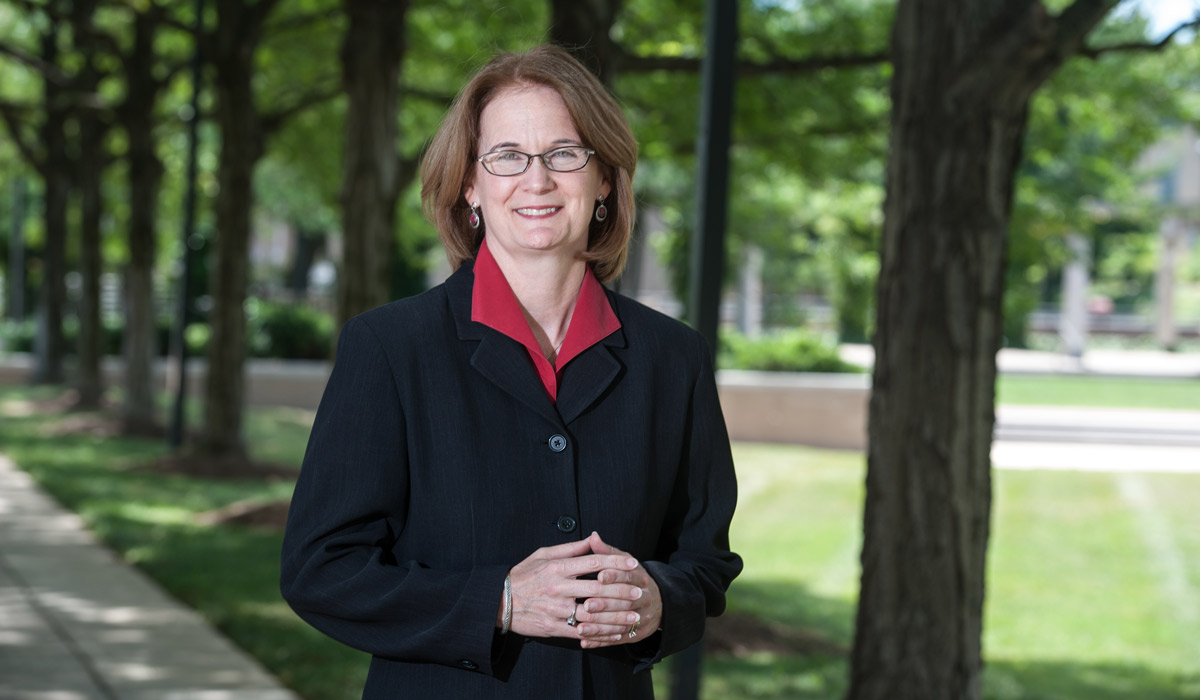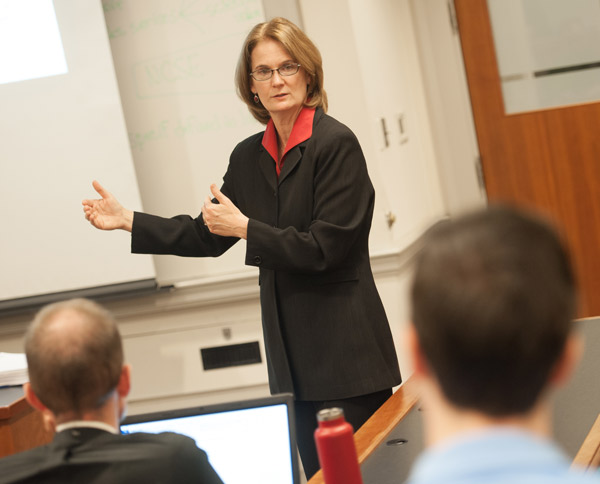

With a quote from a former Catholic high school teacher as her guide, Mary Leary began a career focused on social justice. That quote — “In our world there are the haves and have nots; we have an obligation to help those in need if we are one of the haves” — inspired Leary first to volunteer with homeless teens, then during her career as a prosecutor, and now as a professor in the Columbus School of Law.
Leary’s Catholic high school as well as her undergraduate experience helped spur her to translate faith into action in daily life. After college, Leary spent a year volunteering at Covenant House New Orleans, which provides services for homeless, runaway, and at-risk youth. The experience intensified her desire to practice law. She found that most of the children and teens were victims of violence or sexual exploitation. “No one speaks for them; they have no constitutional rights as victims. I wanted to be a voice for those people.”
Her next move, as a prosecutor, first focused on domestic violence/family law and sexual assault. “Some crimes continue to victimize and tear people apart for years after the traumatic event and the trial are over,” says Leary. She sees these crimes as especially heinous because they “tear at the fabric of the family” and can create an intergenerational cycle of dysfunction.

Leary had an opportunity to influence both law and policy when she transitioned to two national nonprofits. She served as a policy consultant and deputy director for the Office of Legal Counsel at the National Center for Missing and Exploited Children and as director of the National Center for the Prosecution of Child Abuse. In those posts, Leary gained a national perspective on trafficking and child abuse, seeing that “it is happening everywhere; we cannot cast a blind eye.”
With progress made in combating trafficking (every state now has a sex/human trafficking statute), Leary transitioned to the work of teaching law. “In my role as an attorney, it’s one case and one person at a time. In teaching and academia, I can help steer the path of a number of students. In addition, I can help influence the debate and the scholarship on social issues,” says Leary.